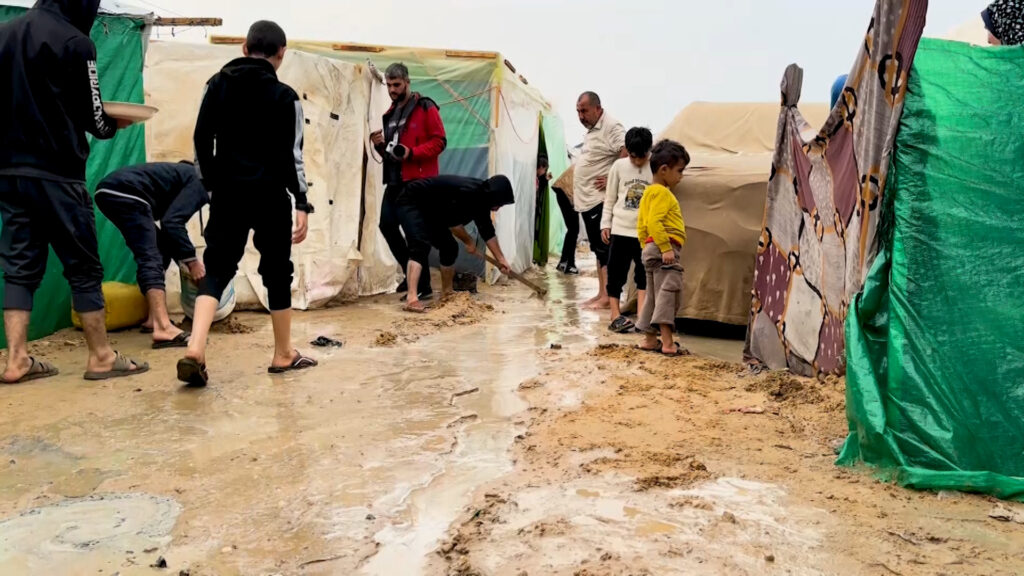Heavy rains exacerbated the difficult conditions in the Gaza Strip, while United Nations humanitarian workers expressed grave concern about the deteriorating health situation in light of the continued Israeli raids on various areas of the Strip.
The Palestinian News Agency (Wafa) reported that the United Nations Office for the Coordination of Humanitarian Affairs said that many areas in the Gaza Strip were flooded, which made the conditions of the displaced more difficult.
About 1.9 million people in Gaza were forced to flee their homes, and more than half of them headed to Rafah in the south to seek safety, but the south of the Gaza Strip was also not spared from the Israeli army’s raids and ground invasion.
The United Nations Relief and Works Agency for Refugees (UNRWA) shelters are overcrowded, with more than 9 times their capacity staying. Many live in the open, where they are exposed to difficult weather conditions, or in ill-equipped shelters.
The United Nations Office for the Coordination of Humanitarian Affairs warned of the difficulty of managing sanitation in crowded shelters.
Infectious diseases
Combined with floods and the accumulation of waste, these conditions lead to the spread of insects, mosquitoes and mice, which exacerbates the risk of the spread of diseases.
Earlier this week, 360,000 cases of infectious diseases were documented in shelters, although the actual numbers may be higher.
The United Nations had warned of a public health catastrophe in the Gaza Strip and the spread of deadly diseases and epidemics among its residents, and its relief agency admitted that Gazans were facing bombing, deprivation, disease and hunger “in an ever-shrinking area.”
Head of the Pediatrics Department, Dr. Ahmed Al-Farra, said, “Many cases result in severe dehydration, including kidney failure or poor kidney performance.”
He added that there had already been up to 30 cases of hepatitis A, which has an incubation period of up to a month.
He continued, “We will be surprised after a month with huge numbers of hepatitis. This is a very dangerous indicator and is caused by overcrowding, eating unsuitable foods, and shared use of bathrooms.”




